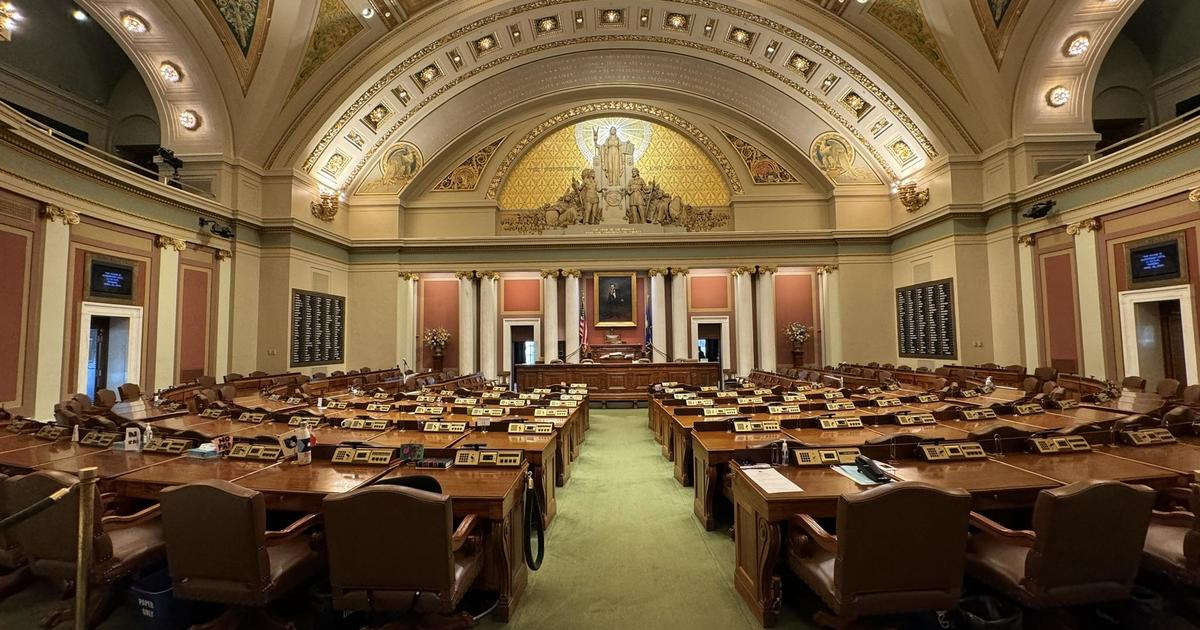As the cost of child care soars, parents plead with Minnesota lawmakers to pass more assistance
ST. PAUL, Minn. — Many Minnesota families are struggling to pay for child care, but are priced out of state assistance to ease that financial burden. On Thursday, parents pleaded with state lawmakers to approve a new scholarship program to make it more affordable for them.
The "Great Start" affordability scholarships would be available to families who make below 150% of the state median income, or $188,000 per year for a family of four. The full scope of the plan is still being discussed, said bill author Rep. Carlie Kotyza-Witthuhn, a Democrat from Eden Prairie. But the aid would range from $25 to $600 per month, depending on how much money families make.
Existing child care assistance are geared toward low-income residents. Kotyza-Witthuhn wants to target the "huge gap" in support for families who make too much money to qualify for the other programs, but not nearly enough to afford both child care and other necessities.
The goal is to get parents closer to spending 7% of their income on child care, which is the federal guideline. A recent report found nearly all Minnesota families are spending far more than that on educating their young children.
"These huge child care bills arrive at a time of life when young families are just getting established and often parents are at the start of their earning capacity, early in their careers," she said.
Suzanne Temple-Gumm, a high school teacher, said she and her spouse will pay more than $45,000 a year this fall when their three children are all enrolled in daycare. That's 30% of their net income and it represents three times the cost of their mortgage.
"Our monthly daycare costs will be more than the cost of our groceries, car payments, utilities, student loans and mortgage combined," she told a House committee Thursday morning.
Infant care costs on average more than in-state tuition at the University of Minnesota, researchers said in that analysis. Ifrah Nur, director of South Metro Childcare Academy in Bloomington, said she quit her job to work there in order to get discounted care for her own children. She explained that she often helps others apply for assistance only to be denied because their income exceeds the threshold—one woman made just $3 more and didn't qualify.
She said lack of affordability means declining enrollment, impacting her business.
"As a childcare provider, I am offering a service that almost no one can pay for, but I cannot afford to charge any less and stay open," Nur testified. "Our communities cannot function without child care, Parents cannot go to work without child care and child care centers cannot stay open without the children."
Kotyza-Witthuhn admits that because of budget restraints, the final proposal may not impact all families who could stand to benefit from a boost, but she hopes that passing some version of it this year could lay the groundwork to build on in the future.
The full price tag for the state is not yet known.
Rep. Walter Hudson, R-Albertville, raised concern about the state's ability to afford subsidies like this in the years to come. There were warning signs in a recent outlook about the state's finances in future years.
"By doing this, we are not removing those costs. We're simply transferring them," he said. "We're transferring them to the entire state, which is fine if the state can afford it and if the state can afford it, not just today, but tomorrow and 10 years from now and 100 years from now."
Minnesota passed a two-year, $72 billion budget last year, but legislators can approve supplemental spending measures in the second year of the biennium.
House Speaker Melissa Hortman, DFL-Brooklyn Park, told reporters that because it isn't a budget-setting session, some bills that require significant additional spending may be discussed this year, but will be tabled until next year when the legislature is required to pass a new two-year spending plan.
"The more money they're looking for, the more fundamental the change in state law they're looking at, the more I would view those bills as stage-setting for the next budget session," Horman said.
"Increasing our commitments in the area of child care is definitely a scalable ask, so there might be some things that we could do that are not super expensive this year," she added. "But I think in terms of a major new infusion of resources to child care, that would be a stage-setting exercise."




